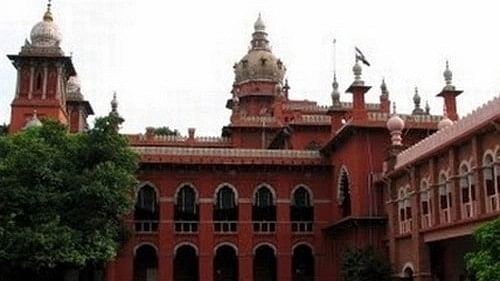
The Madras High Court.
Credit: PTI File Photo
Chennai: The Madras High Court on Friday issued notice to the Union Government over a petition filed by Tamil Nadu’s ruling DMK to declare as “ultra vires” and “unconstitutional” the three new criminal laws which came into effect on July 1.
Admitting the petition filed by DMK organising secretary R S Bharathi, the division bench of Justices S S Sundar and N Senthil Kumar gave four weeks for the Union government to respond to the notice.
Bharathi, a former Rajya Sabha MP said, the government introduced the three Bills and got them passed by the Parliament without any meaningful discussion. “In the absence of any substantive changes, mere shuffling of sections was unnecessary and will cause a lot of inconvenience and confusion regarding the interpretation of the provisions,” he added.
Bharathi contended that the three new laws systematically dismantle the most fundamental criminal jurisprudence principles which include the right to free and fair trial.
Notwithstanding its opposition to implementation of three new criminal laws replacing IPC, CrPC, and Evidence Act, the Tamil Nadu government has fast-tracked translation of the new acts from English into Tamil, besides providing necessary training to those in the judiciary and police department.
The government’s efforts come even as Chief Minister M K Stalin, in a letter to Union Home Minister Amit Shah in mid-June, demanded deferment of implementation of the new laws pending consultation with state governments citing practical issues.
Stalin, in the letter, spoke in detail about the issues faced by state governments in implementation of the three new criminal laws which will replace the existing Indian Penal Code, 1860, the Code of Criminal Procedure, 1973, and the Indian Evidence Act, 1872.